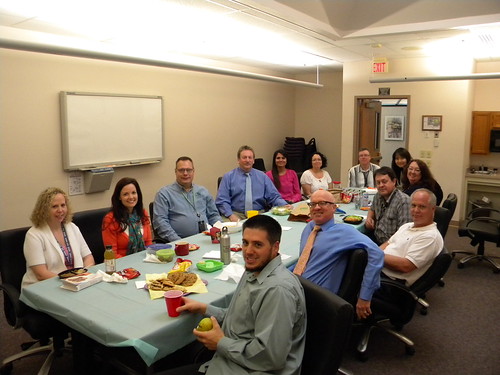
A study shows that coworkers who eat together perform better than those who don’t
Firefighter platoons that eat meals together as a group have better job performance than firefighter teams who dine solo, a new study shows. The findings suggest companies, including Google, that spend lots of money providing their employees with places to eat or at least catered meals do get a good return on their investment. “Eating together is a more intimate act than looking over an Excel spreadsheet together. That intimacy spills back over into work,” says study author Kevin Kniffin, visiting assistant professor in the Charles H. Dyson School of Applied Economics and Manage-ment at Cornell Univer-sity.
- A social adhesive: From an evolutionary anthropology perspective, eating together has a long, primal tradition as a kind of social glue. That seems to continue in today’s workplaces. Given the findings, organisations would do better to consider their expenditure on cafeterias as an investment in employee performance, Kniffin says. The paper appears in the current issue of Human Performance and the Harvard Business Review’s December issue. Over the course of 15 months, Kniffin and his colleagues conducted interviews and surveys in a large city’s fire department, which included over 50 firehouses. The researchers asked the department’s 395 supervisors to rate on a scale of zero to 10 the performance of their platoon compared to other fire companies in which they’ve served. They also asked supervisors how often the platoon eats together in a typical four-day work week. The platoons that ate together most often also got higher marks for their team performance. Conversely, the platoons that did not eat together got lower performance ratings.
- Comparable to family: In interviews, firefighters said daily group meals were a central activity during their shifts. Some firefighters who worked a shift that started at 6 pm often ate two dinners, one at home and a second at the firehouse. One firefighter said, in the company of his coworkers, “you don’t want to dis the wife” by turning down the food she prepared — implying that it was just as important to avoid disrespecting his coworkers. “To me, that’s a good example of the importance of the group. It’s comparable to his family,” says Kniffin, whose father was a longtime big-city firefighter. In fact, the researchers note that firefighters expressed a certain embarrassment when asked about firehouses where they didn’t eat together. “It was a signal that something deeper was wrong with the way the group worked,” Kniffin says. Source: The Asian Age, Image: flickr.com
